
(and an open door)
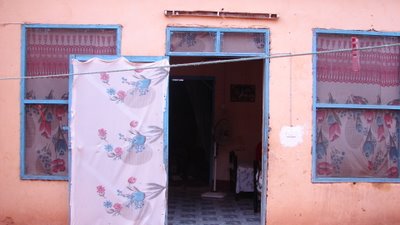
It has been awhile since I posted on the blog, but I have kept a pretty good record of the events and progress of the partnership with a growing array of people, organizations, and officials who all think that working together to create homes and jobs to rebuild and rehabilitate the war displaced is a great idea. I did not find anyone on any side of the political spectrum who did not like the idea. Much of the partnership building has to do with lobbying (just me, no lobby group) in Khartoum and in Washington to convince them that grass roots and 'people' participation is a great way to begin and also 'government' participation. This is a harder sell... but... it is the government who has to pay the teachers and the health care workers and who has to build the roads and maintain the infrastructure... so ... a project to rehabilitate and rebuild has to be with everyone's permission and agreement. So far - by God's grace (enshalla) we have it and the spirit of unity with many factions.
Apart from a very interesting trip to Darfur (both the North and the South), I spent a lot of time visiting 'ministers' - education, humanitarian affairs, environment, physical development, joint national transition, welfare, gender and children affairs, oaths, and finance.. (I have a few left like the minister for international cooperation and sports, youth and cultural exchange... I will visit them for sure next time as one month was just not enough time to visit everyone). I also promised the West Darfur HAC (humanitarian affairs commission) and an ex governor of West Darfur, that I would visit West Darfur next time and establish a project there.
One very important aspect of this trip was to connect with some of the international and national NGOs already working on the ground such as UNESCO, UNICEF, the World Food Program, CHF International, Klaimendo, Marhama, and SPCR. These are in addition to visiting the Rufaida Health Foundation site in the OTASH camp and coordinating with them and the Women's Center for Peace and Development for future projects in promoting health and peace.
Not to neglect the universities that have an active interest in promoting peace, protecting and rehabilitating the environment, and education - I spent some time with the departments of El Fasher University and informally agreed to help promote some exchange teaching, cultural exchange and technology exchange. The university in El Fasher and some of the faculty at Khartoum University are highly interested in building prototypes of the 'superadobe' houses (www.calearth.org) on their campuses. La Sierra University's SIFE team ( http://www.sifelink.com/) is also actively engaged in plans to team up with students from Sudanese universities to start small businesses in the villages and to build a prototype superadobe house on their campus in California.
This trip was in part a campaign to engage multiple parties in building the peace with ground-up participation in building secure housing and partnering to figure out some viable 'livings' in an environmentally stripped region like Darfur. Though all of the bad things make the 'one article a week' in the American news (and there are bad things happening - from both government and rebel perpetrators) none of the good things ever make the news. The universities, for one, are trying their best to research methods for restoring the environment, for bringing peace, and for promoting learning of governance and rule of law. They are doing this with no equipment, no resources, and often departments that consist of a faculty of 'one'. This is not easy. Furthermore, there are individuals in all parties (the ruling party is no exception) that are sick of war, that want reform, and who are working together to bring change in the gradual way that is necessary to transform a country that has been operating under the institution of war for fifty years. This is not an instant call - switching to a democratic system with voting and rule of law. Most of the people in the periphery just want food, shelter, and education.
Okay, I did not meant to rattle on about the complexities of democratization, though as a political scientist, I just cannot help it. From my artistic eye, I have to report that I visited one of the most beautiful regions of North Darfur about a hundred and fifty miles from El Fasher, with a 'non profit' organization that has started building a prototype village/town in a government/rebel free zone. This area has more than 20 wells and is reasonably safe and prosperous thanks to the generous contributions of one wealthy person from Darfur. Yes, there are wealthy Darfurians, and wealthy Sudanese that I met who are all willing to help with contributions. But... not unlike my potential American donors, they are skeptical, they often have political agendas, and only want to give money for something they are SURE will work. That attitude often leaves us academics on our own working with 'big ideas' and little funding. Nonetheless... 'creation' comes from the imagination. I (an artist and painter by vocation) am working with two architects (Nader and Kate), an old friend who is now a CEO of a biotech firm, another colleague from Claremont who is dean of a business school, an 'expat' Sudanese family, an imam, a rabbi, (the rest of us are Christians, Moslems, or just 'good people') five Sudanese NGOs, and some academics from both nationalities - we have lots of HEART, lots of FAITH, and lots of IMAGINATION. Since the institution of WAR has not worked, we are trying a different long range strategy.
Oh yes, PICTURES... I took a lot of pictures from the most beautiful region of Darfur, but unfortunately, due to a small minded official (who was only one security official among many other visionary officials who helped me a great deal) I lost all of the village and natural resource pictures from the North.
(For sure here is a spot that is a blank slate open to imagining great things. This is what is left of a village that housed around 300 households and where villagers would rebuild if they had the material, the means, and a living... security was one of the minor reasons given for not going back in this region, and lack of rain for the crops this year was one of the major factors)
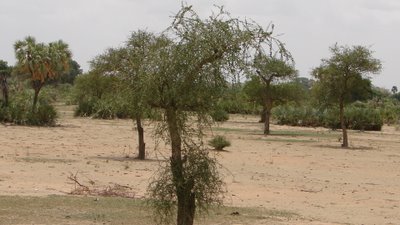
(And indeed this is one thing that I imagine can fill this blank slate along with a nice business, or some advanced farming techniques that maybe we can persuade one of the midwest universities to contribute)
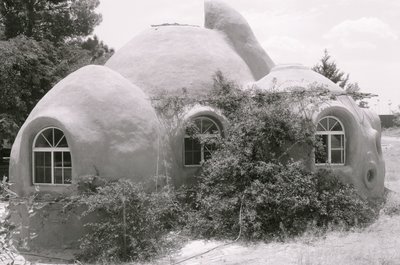
(This might be an improvement on this.....)
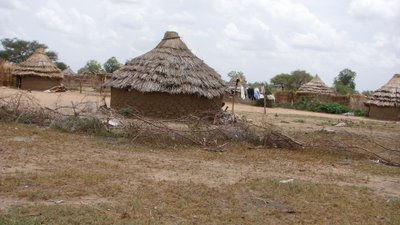
(or this)
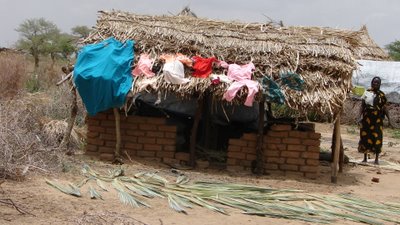
I visited potential building sites in the North and the South and have set up plans for long distance learning with at least three different groups of architects and engineers. The next weeks will involve lobbying and fundraising, but we are eager to get back to the Sudan to start building so that the people can see something with their eyes to bring HOPE.
(Oh yes, I also talked with the village leaders and chiefs about their villages and what it would take for them to return... mostly materials and incentives)
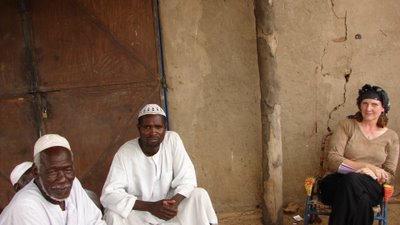
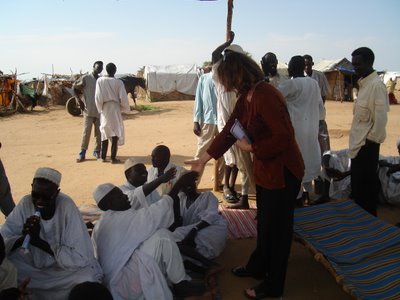
I forgot to mention that I spent some time with two very helpful friends and colleagues pricing local materials for building the houses and discussed places for storing them while building. I also discussed local customs, methods of payment with the local NGOs, and possible funding through UN agencies.
(Here is a scene from the main market for building materials in Khartoum)
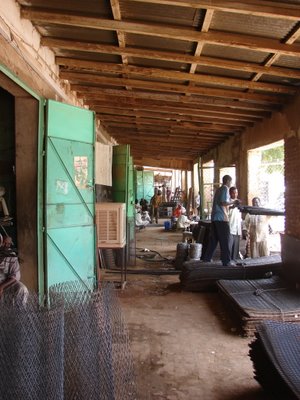
I grant you all that this was a quick update of a long period of time.
Current activities besides working as an assistant curator, planning at least one guest lecture for a civil wars class with one of my colleagues at Harvard, and giving a talk on 'governance' to the 'police general's club' in Khartoum, - I am working on two grants to fund counseling for the war traumatized and education on the peace treaties, and exploring as many areas for funding as possible in the next two months.
I have not yet mentioned on my official web site the great team at Cooley Godward, LLC (Sherwin, Bob and Judith) that has helped our little organization (with big ideas) to incorporate and to apply for our tax exempt status and OFAC license. This has been no small task. THANK YOU

No comments:
Post a Comment